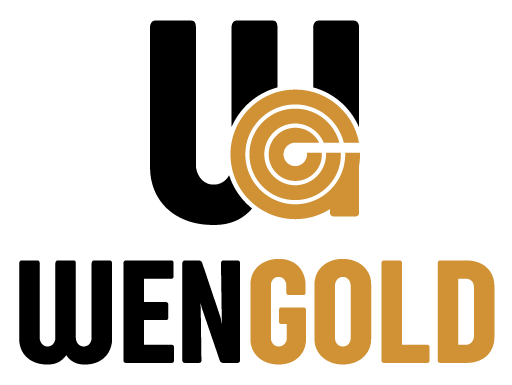Currently Empty: $0.00
Gatehouse Treatment would like to help you overcome your relapse triggers. We propose you take a moment to learn about how addictive triggers can impact your life. In doing so, you will be able to spot the different signs of addiction and protect yourself better in the future. Agape Treatment Center for substance abuse embraces a universal, unconditional love that transcends, that serves regardless of circumstances.
What Is the Cycle of Addiction?
Addressing internal triggers is a critical part of creating a well-rounded plan for managing addiction triggers. With the right strategies and support, individuals can successfully navigate both internal and external challenges on their recovery journey. Internal triggers are emotional or psychological experiences – like specific thoughts, feelings, or memories – that can spark urges for substance use. Unlike external triggers, which are linked to the environment, internal triggers demand deeper emotional work and self-awareness to handle effectively 1. Emotions that act as internal triggers can be negative, positive, or neutral.
Emotions
- There may be times in your life when triggers are more powerful than others, but you will learn how to better manage them.
- It’s important for each of us to identify the triggers that you experience and to notice which ones come up repeatedly for you.
- In contrast, when they increased the corticosterone levels, unstressed rats showed relapse behaviors when triggered.
- Using a combination of medical, clinical, psychiatric, and holistic approaches, our highly skilled professionals will help you heal your mind, body, and spirit.
- Some people cope with stressful events more easily than others; consider the impact such events might have on people with mental illnesses.
- Research suggests that people who have used drugs in order to mitigate stress in the past are likely to return to this behavior when future stressors arise.
External triggers are environmental events and situations that make you want to use drugs or drink alcohol. This can be anything from certain social situations, responsibilities, and even specific places that trigger your desire to use again. The solution to overcoming this relapse trigger is to learn how to channel your positive feelings in a positive way, without the use of substance abuse. One of the cornerstones of treatment options for addiction recovery is education about triggers and healthy ways to cope with them.
Situations
With time, awareness, and coping strategies, some triggers may lose their power, https://yourhealthmagazine.net/article/addiction/sober-houses-rules-that-you-should-follow/ while new ones might emerge. One person’s trigger might be entirely inconsequential for another. By pinpointing and cataloging what personally affects you, you’re arming yourself with invaluable knowledge.
What Are Internal and External Triggers?
While triggers do not force a person to use drugs, they increase the likelihood sober house of drug use. The National Institute on Drug Abuse (NIDA) reports that 40 to 60 percent of people treated for substance use disorders relapse. A significant amount of people struggling with substance abuse find it difficult to resist relapse triggers. The negative side effects of relapsing after enrolling in drug and alcohol recovery programs is another concern. In recent experiences, drug and alcohol abuse after practicing abstinence, heightens an individuals chances of overdosing. A relapse trigger is a situation—environmental, emotional, social—that drags up memories of past drug or alcohol use.
Mental Health Resources
Education on coping skills can help people manage thoughts of using. In rats and humans, the hormone corticosterone increases the level of dopamine, a brain chemical that plays a major role in reward-seeking behavior, in the brain in response to stress. Cocaine and several other illicit drugs also boost levels of dopamine. The Marquette researchers stated a stressed animal previously exposed to cocaine will crave the drug because the dopamine surge from cocaine trumps the release of stress-related dopamine.
- If you need more direct help, please reach out to one of our representatives.
- When you encounter these factors, they can cause you to crave drugs or alcohol.
- Understanding and managing external triggers is a crucial part of the recovery journey.
- Some researchers believe that the brain stores memories from a traumatic event differently from memories of a non-traumatic event.
- Moving Mountains Recovery, based in Randolph, New Jersey, offers a comprehensive and unique approach to addiction recovery.
How to Help Someone with Alcoholism
We provide individuals all over the country with the opportunity to achieve the gift of lasting sobriety. If you or someone you know may need help dealing with triggers, Agape offers an environment focused on recovery. To discuss treatment options, contact admissions today and speak with one of our local addiction experts. Research suggests that people who have used drugs in order to mitigate stress in the past are likely to return to this behavior when future stressors arise. This would suggest that someone in recovery could be prone to relapse due to an elevated level of stress in life. Facilities like Ikon Recovery Center offer support tailored to both types of triggers.
While many triggers can be negative experiences, it is important to note that positive events can trigger relapsing as well. While you can’t always avoid triggers, you can learn coping mechanisms and strategies to lessen their impact. When you are exposed to a potential trigger, the cravings will pass within a few hours if you resist the urge to relapse. Having a plan to get through times when your cravings are triggered will be very helpful in avoiding a relapse.
It should not be used in place of the advice of your physician or other qualified healthcare provider. Knowing the difference between internal and external triggers is key to developing effective coping methods during recovery. Both types can lead to cravings or even relapse, but they require different management strategies. People closest to the individual may set off cravings that eventually lead to a relapse. It is perilous for a person in recovery to be around substance-using friends and family.

